Meet the Gazan woman turning rubble into building blocks and sunlight into power
Sunbox provides renewable energy to families who claim they would otherwise have to survive on three hours of electricity a day
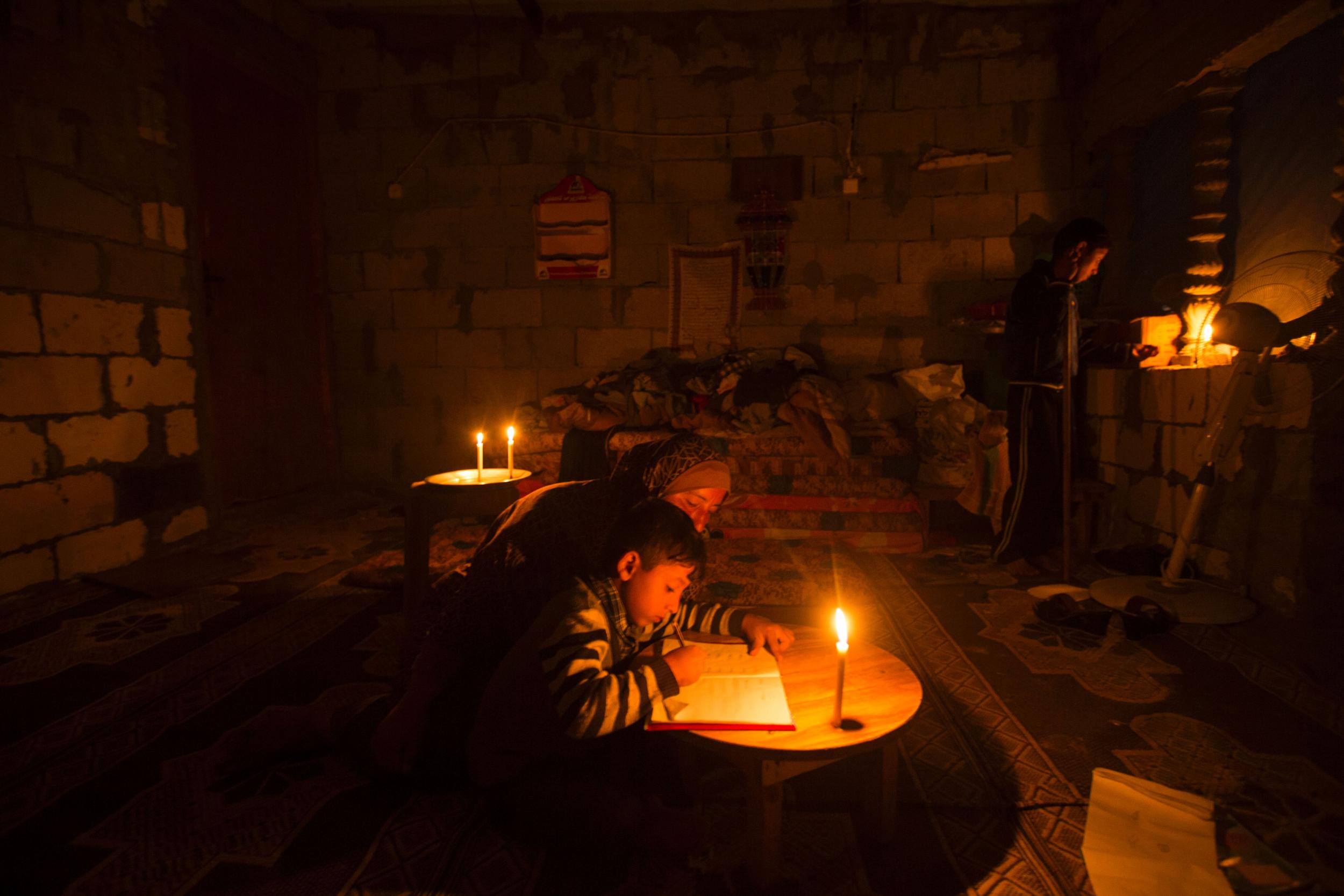
Your support helps us to tell the story
From reproductive rights to climate change to Big Tech, The Independent is on the ground when the story is developing. Whether it's investigating the financials of Elon Musk's pro-Trump PAC or producing our latest documentary, 'The A Word', which shines a light on the American women fighting for reproductive rights, we know how important it is to parse out the facts from the messaging.
At such a critical moment in US history, we need reporters on the ground. Your donation allows us to keep sending journalists to speak to both sides of the story.
The Independent is trusted by Americans across the entire political spectrum. And unlike many other quality news outlets, we choose not to lock Americans out of our reporting and analysis with paywalls. We believe quality journalism should be available to everyone, paid for by those who can afford it.
Your support makes all the difference.For Samar, Gaza’s crippling blackouts used to mean a daily, panicked rush to take her son to the nearest hospital so that his lungs wouldn’t fail.
He suffers from a lung disease that has left him dependent on a machine to breathe. But the machine depends on electricity – something in critically short supply in Gaza.
Samar’s story is far from unique, with the enclave’s two million residents forced to try to survive on reduced hours of electricity since Israel imposed a blockade in 2016.
Hospitals and other buildings rely on generators to keep the power on during the cuts, but they are expensive, and until recently, a luxury that Samar was unable to afford.
In comes Majd Mashharawi, an award-winning entrepreneur and CEO of a company that is providing radical solutions to Gaza’s energy crisis.
“I wanted to address two serious issues in my community – electricity and building materials,’’ she tells The Independent.
She designed SunBox, a generator that uses solar power to provide electricity in the face of the blockade. Linked up to panels that residents can install on their roof, the machine generates 1,000 kilowatts of electricity and needs only three hours to recharge back to full capacity. Gaza, she jokes, will never run out of sun.
“SunBox is more than a solar device that provides lights for my kids to study and run the TV for them, it really changed my life by providing electricity to run the medical device for my sick child,” says Samar.
“Now I do not have to worry every day whether I can go to the hospital or not, I do not have to run anymore to be on time so I can provide him with oxygen before something happens.”
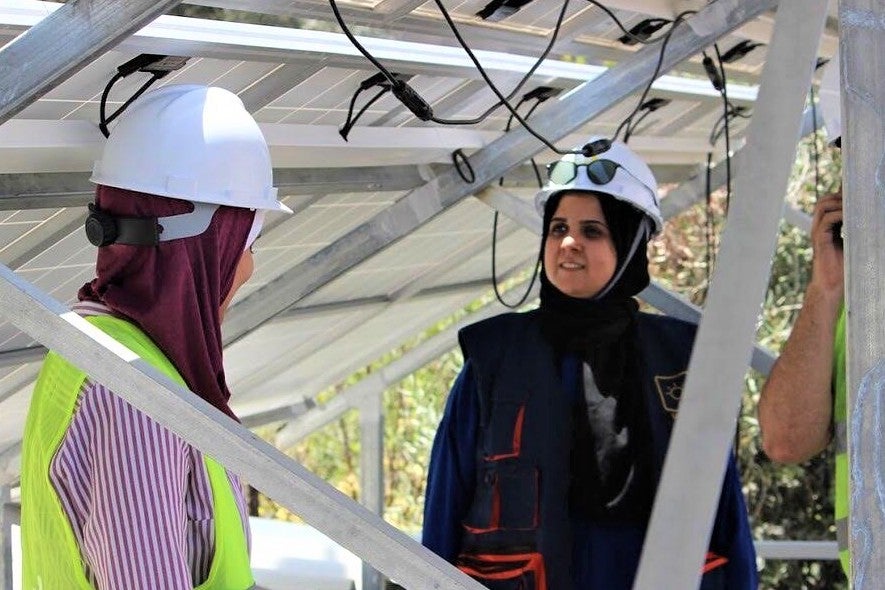
Resourced from China, SunBox subsidises the generators, but at $450 (£348) it was still too expensive for many in the enclave. According to the World Bank, unemployment in the strip is 47 per cent, among the highest in the world.
“One of the first units I installed was in a refugee camp. The next day I went back to the camp and saw the whole neighbourhood watching football using our device”, Majd recalls.
This, she says, sparked an idea in her mind: two families can share the unit, bringing the cost down for those already living in close-knit communities.
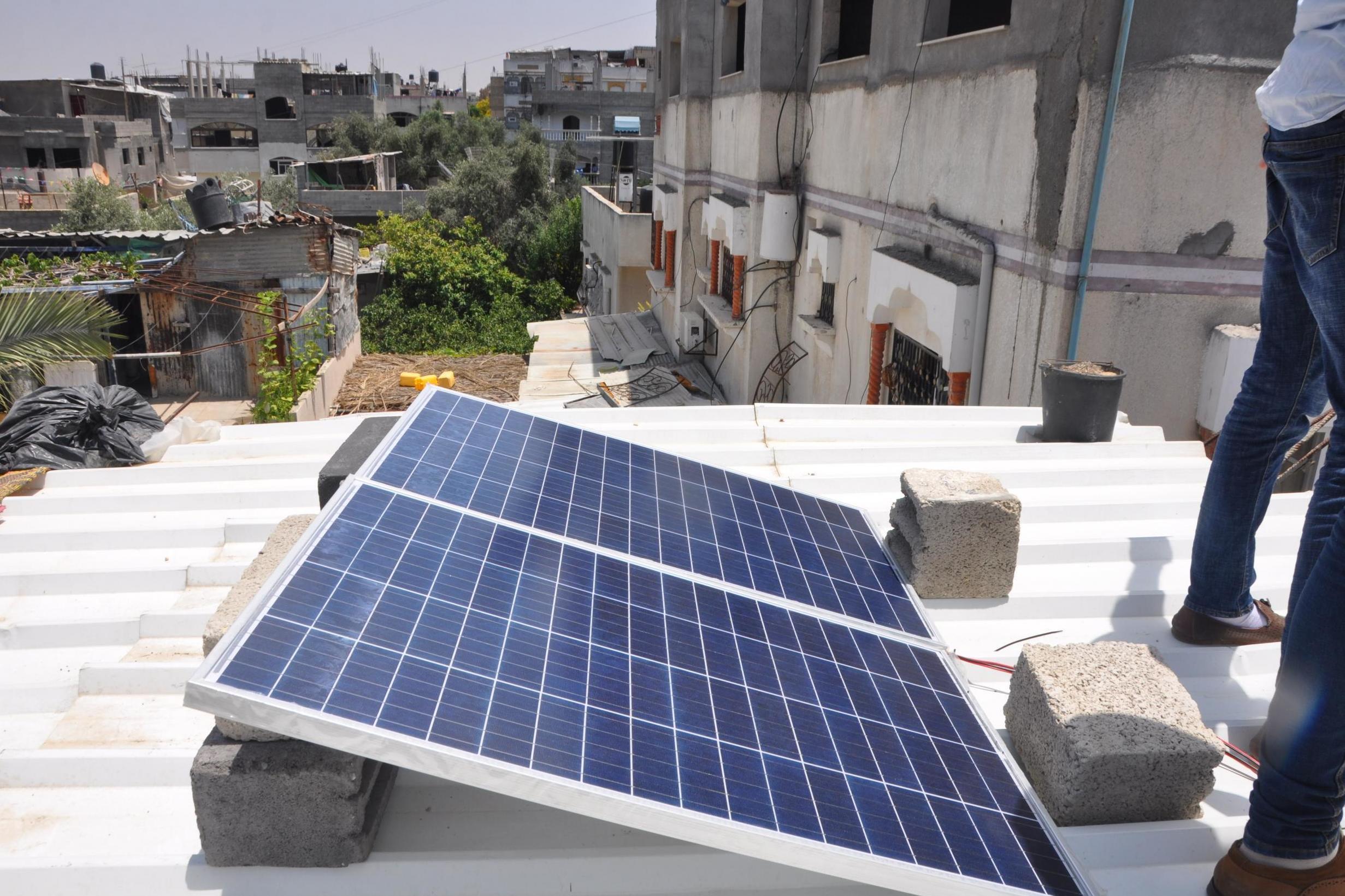
She calls it the “Sharing is Caring Model”. The company initially started by providing energy to 15 families, but this soon skyrocketed, and in the first quarter of 2019, she says more than 1,000 people were using the clean-energy source.
For another customer, Muna, the energy source has enabled her to continue her work from home as a tailor. She says her small business was severely affected by the electricity crisis and she’d often stay up all night waiting for the electricity to come back.
“I don’t have to worry when I will wake up and when I can sleep. I never imagined I would control my source of energy, I feel independent,” she says.
SunBox is not Majd’s first project to have found a novel solution to one of Gaza’s crises.
After the 2014 war between Israel and Hamas, 17,000 homes were destroyed or damaged and some 100,000 people were left homeless, according to the UN.
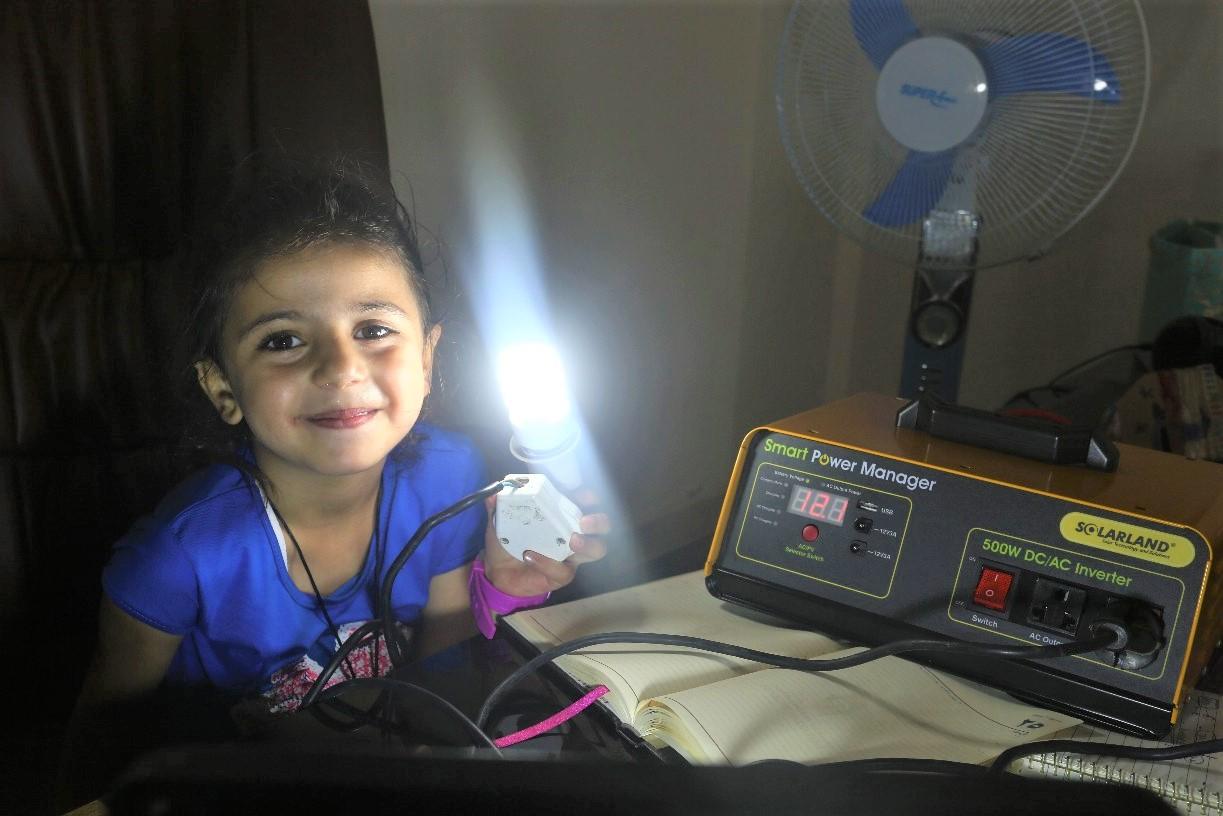
The war and the ensuing devastation had a profound effect on Majd: “I thought, as an engineer, what can I do for my people?”
Houses needed to be rebuilt, but the block on many imports meant that Palestinians in Gaza were unable to get the cement and aggregate needed for bricks.
It was among the destruction and debris that Majd founded her first project: “Green Cake”. Hers was a revolutionary solution: Combining ash and rubble to create an affordable, cheap and sturdy building block.
The team went through dozens of trials until they found the prototype that passed the strength, water and fire resistance tests. The response was overwhelmingly positive, and her first client commissioned her team to build an external wall with 1,000 blocks.
“This is not just a building block, it’s changing the stereotype of women in Gaza,’’ she says.
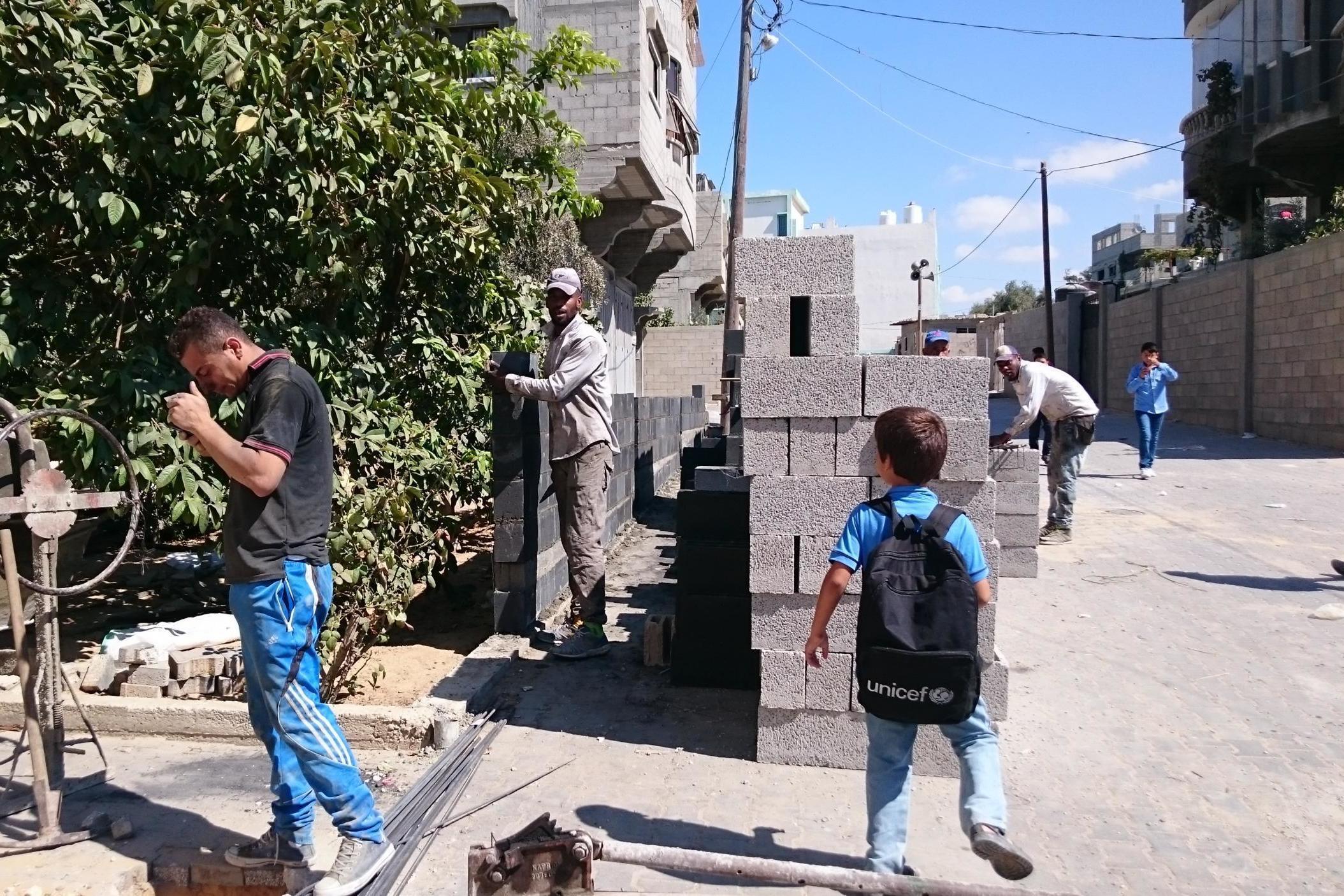
For Majd, her inventions are a crucial way of challenging the stereotypes around women in Gaza and trailblazing the way for other female entrepreneurs.
Clients are often surprised to find that the CEO of SunBox is female, and she recounts how her engineering class at the Islamic University of Gaza had a 6-1 male to female ratio.
These preconceptions only spur her on further: “Education is the strongest weapon us women have to fight for our freedom, a decent life and our future.
Majd is now training new graduates to be involved in her company, with a big focus on recruiting women. Well known in her community, she has an open-door policy in her office and gives advice to young entrepreneurs.
“I want to show that we are not just victims in Gaza. I am a statistic that cannot be ignored.”
Join our commenting forum
Join thought-provoking conversations, follow other Independent readers and see their replies
Comments